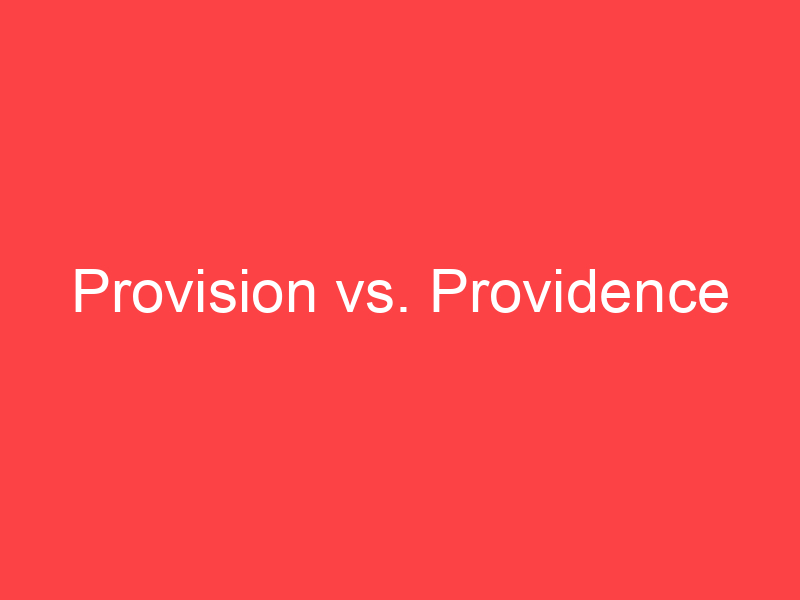-
Provision (noun)
An item of goods or supplies, especially food, obtained for future use.
-
Provision (noun)
The act of providing, or making previous preparation.
-
Provision (noun)
Money set aside for a future event.
-
Provision (noun)
A liability or contra account to recognise likely future adverse events associated with current transactions.
“We increased our provision for bad debts on credit sales going into the recession.”
-
Provision (noun)
A clause in a legal instrument, a law, etc., providing for a particular matter; stipulation; proviso.
“An arrest shall be made in accordance with the provisions of this Act.”
-
Provision (noun)
Regular induction into a benefice, comprehending nomination, collation, and installation.
-
Provision (noun)
A nomination by the pope to a benefice before it became vacant, depriving the patron of his right of presentation.
-
Provision (verb)
To supply with provisions.
“to provision an army”
-
Provision (verb)
To supply (a user) with an account, resources, etc. so that they can use a system.
-
Providence (noun)
Preparation for the future; good governance, foresight. from 14th c.
-
Providence (noun)
The careful governance and guidance of God (or another deity, nature etc.). from 14th c.
-
Providence (noun)
A manifestation of divine care or direction; an instance of divine intervention. from 16th c.
-
Providence (noun)
Specifically, the prudent care and management of resources; thriftiness, frugality. from 17th c.
“His providence in saving for his old age is exemplary.”

